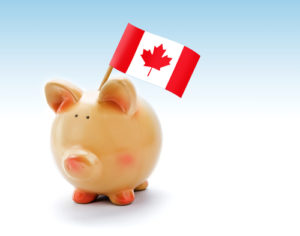Special to the Financial Independence Hub
The most common Canada Pension Plan question I am asked is: “Is it smart to take my CPP early?”
A quick review of the facts:
- The maximum CPP benefit in 2017 at age 65 is $1,092.50 per month, or $13,110 per year.
- You can start as early as age 60, but you get 7.2% less for every year before age 65. If you start at age 60, you get 36% less, so the maximum is $8,390 per year.
- New rules in 2012 increased the penalty for starting early, but you can start CPP even if you are still working.
The simple breakeven calculation misses many important factors. For example, if John starts receiving $8,390 per year at age 60 and Jane starts receiving $13,110 at age 65, it will take her nine years to catch up. The simple breakeven is age 74. John gets more before age 74 and Jane gets more after.
This implies that if you expect to live past 74 (and most people will), you should delay your CPP. But this is not the full answer.
The answer depends on five main factors:
1.) How long do you expect to live?
Morbid question, but important for this decision. If you start CPP at age 60 instead of 65, you collect for five more years. If you start at age 65, you get more and eventually catch up. The longer you expect to live, the better it is to delay CPP. Today, a 60-year old of average health should expect to live until age 85. (Actually, it’s 84 for men and 87 for women.)
2.) How do you invest?
Starting your CPP early might mean you can take less income from your RRSPs and investments, leaving them to grow. Then you can take more income from your investments later.
3.) What will inflation be?
CPP benefits rise by inflation each year. Higher inflation means you get more up front by starting earlier. With 2% inflation, the simple breakeven rises from age 74 to age 76.
4.) Are you still working?
If you are still working, CPP income will be added to your work income and will probably be taxed at a higher rate.
5.) When do you need the money?
Part of a retirement plan is figuring out how much income you want and when. If you plan to travel a lot for a few years, it might make sense to start CPP earlier.
Let’s look at some real-life stories from my clients. Should they start CPP early?
| Real-Life Stories – Is it smart to take my CPP early? | |||
| Name | Story | Breakeven Age | CPP Early? |
| Angela | No investments | 76 | No |
| Brian | GIC Investor | 77 | No |
| Chris | Balanced investor | 82 | No |
| Dave | Equity investor | 93 | Yes |
| Erin | Still working | 86 | Yes |
| Fred | Working. RRSP room | 87 | Yes |
1.) Angela is 59 and ready to retire. She has no investments and has only a fixed pension (not integrated with CPP). Her breakeven age is 76 and she expects to live longer than that. Should she start CPP early? No.
2.) Brian is about to retire. He is a conservative investor with GICs in his RRSP and TFSA. If he starts CPP early, he can withdraw less from his GICs and keep earning 2% per year. His breakeven age is 77. Should he start CPP early? No.
3.) Chris is retiring and is a moderate investor. She wants her balanced and income funds to continue to grow. A reasonable expected return is 5% per year. Her breakeven age is 82. Should she start CPP early? No.
4.) Dave is a more aggressive equity investor. His investments are all in equity funds, which he expects should average 8% per year. The stock market has averaged 10-12% per year long term, but it is reasonable to expect somewhat less in this lower inflation environment. His breakeven age is 93. Should he start CPP early? Yes.
5.) Erin plans to keep working a few more years and makes $50,000 per year. If she starts CPP early, it will be taxed at 30%, because it is on top of her salary. If she waits until she stops working at 65, her income will be lower and she will pay only 20% tax on her CPP. If she was a GIC or balanced investor, the answer would be a stronger “No.” But she is also an equity investor. Her breakeven age is 86. Should she start CPP early? Yes.
6.) Fred is still working and earns $100,000 per year. He is a relatively aggressive investor expecting to earn 7% per year on his investments. His CPP will be taxed on top of his salary in a 43% tax bracket. The answer would normally be “No.” However, Fred has lots of RRSP room. His plan is to take CPP early, request no tax withholding, and then contribute the full CPP amount to his RRSP to offset the tax. His breakeven age is 87. Should he start CPP early? Yes.
The answer is complex and CPP is only one piece of your retirement income. The best advice is to look at this as part of a professional retirement plan.
 Ed Rempel, CPA, CMA, CFP is a popular financial blogger, fee-for-service financial planner, and an expert in many advanced tax & investment strategies. He is a certified financial planner with a unique understanding of how to be successful financially based on extensive real-life experience, having written nearly 1,000 comprehensive personal financial plans. He has been an active blogger for more than 10 years. He loves sharing his insights on his blog “Unconventional Wisdom” at https://edrempel.com/
Ed Rempel, CPA, CMA, CFP is a popular financial blogger, fee-for-service financial planner, and an expert in many advanced tax & investment strategies. He is a certified financial planner with a unique understanding of how to be successful financially based on extensive real-life experience, having written nearly 1,000 comprehensive personal financial plans. He has been an active blogger for more than 10 years. He loves sharing his insights on his blog “Unconventional Wisdom” at https://edrempel.com/




Another factor which I never seen discussed is the number of non-contribution years used in CPP calculation. If one retires early (before 60) or one gets compensated by dividends (private corporation) then there is significant impact on the final CPP payment amount by waiting after age 60.
Also the breakeven points used never discount the future payments back to a given point in time – the numbers are always shown that future dollars are equal to current dollars – the comparisons are always apples to oranges. If you think that that is ok give me the dollars now and I’ll give you the same dollars back in 15 years – few people would go for that deal. If you know anybody who thinks that is a good deal please have them contact me – we can talk :).
Hi tbgcal,
My figures here include the effects of inflation.
I found that the effects of being able to allow your investments to grow longer was even a bigger factor. In fact, how you invest turned out to be the single most important factor. I have not seen any other articles that include this key factor.
That is a good point about the number of drop-out years. Your 8 lowest earning years since age 18 (plus years when you had kids under age 7) are “dropped out” in calculating how much CPP you get.
This might be a reason to take it earlier for people that already have their 8 drop-out years.
Ed
It’s never simply a matter of dollars at age 90+. I retired at age 60 and took cpp immediately because I am healthy and travel as much as I can, hence the benefit of extra income. If I do live into my 90’s, I don’t realistically believe that I will be traveling the world at that stage of life hence the need for less income.
I’d like to suggest one more scenario.
If I take CPP at 65 or later, it will push my income into OAS Clawback territory thereby reducing the amount of CPP I get to keep. Take it at 60 instead, eliminate or reduce Clawback, invest in equities to max out my TFSA each year, and the breakeven age may be never!
Hi Vancouver Bob,
In my follow-up article “https://edrempel.com/delay-cpp-oas-age-70-complete-answer-real-life-examples/ “, I looked at the OAS clawback. I found that in no case was it significant enough to change my recommendation.
The GIS clawback for lower income people is a huge and deciding factor.
Your idea of taking it at age 60 and investing in equities is also a determining factor. If you will invest it all into equities in your TFSA, then you should take CPP early, Bob.
Ed